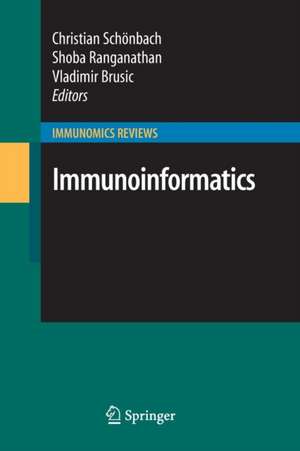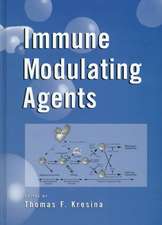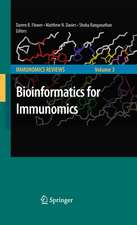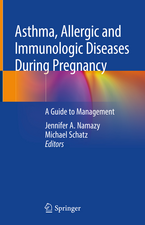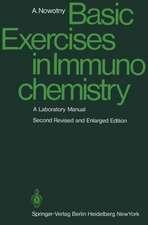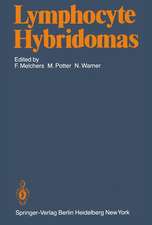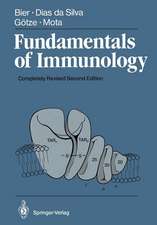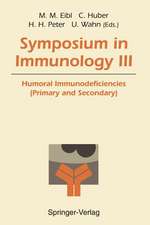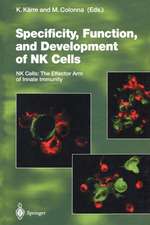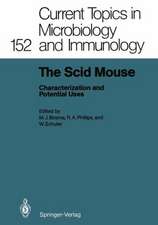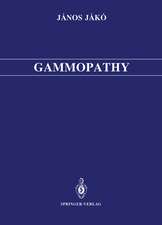Immunoinformatics: Immunomics Reviews:, cartea 1
Editat de Christian Schönbach, Shoba Ranganathan, Vladimir Brusicen Limba Engleză Paperback – 2 dec 2014
| Toate formatele și edițiile | Preț | Express |
|---|---|---|
| Paperback (1) | 1090.61 lei 6-8 săpt. | |
| Springer – 2 dec 2014 | 1090.61 lei 6-8 săpt. | |
| Hardback (1) | 1095.73 lei 6-8 săpt. | |
| Springer – 26 noi 2007 | 1095.73 lei 6-8 săpt. |
Preț: 1090.61 lei
Preț vechi: 1148.02 lei
-5% Nou
Puncte Express: 1636
Preț estimativ în valută:
208.72€ • 217.10$ • 172.31£
208.72€ • 217.10$ • 172.31£
Carte tipărită la comandă
Livrare economică 14-28 aprilie
Preluare comenzi: 021 569.72.76
Specificații
ISBN-13: 9781489997838
ISBN-10: 1489997830
Pagini: 228
Ilustrații: XXVIII, 200 p.
Dimensiuni: 155 x 235 x 12 mm
Greutate: 0.33 kg
Ediția:2008
Editura: Springer
Colecția Springer
Seria Immunomics Reviews:
Locul publicării:New York, NY, United States
ISBN-10: 1489997830
Pagini: 228
Ilustrații: XXVIII, 200 p.
Dimensiuni: 155 x 235 x 12 mm
Greutate: 0.33 kg
Ediția:2008
Editura: Springer
Colecția Springer
Seria Immunomics Reviews:
Locul publicării:New York, NY, United States
Public țintă
ResearchCuprins
IMGT-ONTOLOGY, IMGT® Databases, Tools, and Web Resources for Immunoinformatics.- IMGT Standardization for Molecular Characterization of the T-cell Receptor/Peptide/MHC Complexes.- Structural Immunoinformatics.- In Silico QSAR-Based Predictions of Class I and Class II MHC Epitopes.- Allergen Bioinformatics.- Immunoinformatics Applied to Modifying and Improving Biological Therapeutics.- Plasticity of Dendritic Cell Transcriptional Responses to Antigen: Functional States of Dendritic Cells.- Understanding the Immune System by Computer-Aided Modeling.- Simulation of HIV-1 Molecular Evolution in Response to Chemokine Coreceptors and Antibodies.- MUTANT MOUSE: bona fide Biosimulator for the Functional Annotation of Gene and Genome Networks.
Notă biografică
Christian Schönbach is currently an Associate Professor (Genetics and Genomics) at Nanyang Technological University (Singapore). Until recently he was Team Leader of the Immunoinformatics Team at the RIKEN Genomic Sciences Center (Japan). His research on decoding mouse genome information employs both computational and experimental methods. He obtained is higher education at University of Würzburg, SUNY Albany, University of Tübingen, Max-Planck Institute for Biology, and UCSD. He holds a doctor degree in Genetics obtained through immunogenetics research under Jan Klein at the Max-Planck Institute for Biology. He completed his post-doctoral training in experimental and computational immunology with Masafumi Takiguchi and Kohji Egawa at The University of Tokyo, Institute of Medical Science.
His working experience includes research scientist in gene discovery and bioinformatics at Chugai Research Institute for Molecular Medicine, Inc. (Japan), visiting scientist in immunology at the University of Tokyo, principal investigator in computational immunology at Kent Ridge Digital Labs, and Team Leader at RIKEN GSC where he interfaced for its bioinformatics group between computer science and experimental biology. Besides he contributed to the RIKEN GSC large-scale project ‘Functional Annotation of Mouse’ as a senior annotation manager and core group member.
C. Schönbach authored 55 publications and two patents. He is a founding member of the International Immunomics Society, section editor for Immunome Research and served as editorial board member of New Generation Computing. He contributed as program committee member to various international bioinformatics meetings and to international conferences as invited speaker, keynote speaker, and memorial lecturer. In 2004 he convened the 1st International Immunoinformatics Symposium at RIKEN GSC.
Shoba Ranganathan is currently Chair Professorof Bioinformatics at Macquarie University (Australia). She is also Adjunct Professor at the National University of Singapore. Her research is focused on bioinformatics analysis at the genome, transcriptome and proteome levels. She holds a doctorate degree in Chemistry from the Indian Institute of Technology, Delhi, India under the supervision of A.S.N. Murthy, followed by post-doctoral training in biocomputing with Bernard Pullamn and Alberte Pullman at the Institut de Biologie Physico-Chimique, Paris, France.
Her working experience includes academic positions at the University of New Orleans, USA; University of Delhi, India; University of Sydney, Australia; Australian National University and the National University of Singapore, Singapore.
S. Ranganathan has authored 77 publications. She was the first Australian Director elected to the Board of the International Society for Computational Biology (ISCB) and is currently the President, Asia-Pacific Bioinformatics Network (APBionet) and Steering Committee member of the International Immunomics Society. She is an editorial board member and reviewer for several bioinformatics journals and has served on the organizing committee of various international conferences.
Vladimir Brusic is the Director of Bioinformatics, Cancer Vaccine Centre, Dana Farber Cancer Institute, Boston, Massachusetts USA, the Professor of Bioinformatics and Database Management at the University of Queensland, Brisbane Australia, and an Adjunct Associate Professor at The National University of Singapore. His research is focused on translational bioinformatics, particularly applications in immunomics and vaccine development. He has been a pioneer in the field of immunoinformatics and introduced the use of several machine learning techniques into the study of immunology. He has a PhD from LaTrobe University, Australia. He has master degrees in Biomedical Engineering, Applied Science, and Business Administration. He worked at University of Belgrade (Serbia), Walter and Eliza Hall Institute (Australia), and Institute for Infocomm Research (Singapore).
Dr Brusic published more than 130 scientific articles and two patents. He is the founding Vice-president of the international Immunomics Society. He is a member of editorial boards and reviewer for several journals and has served on the program committees of numerous international conferences.
His working experience includes research scientist in gene discovery and bioinformatics at Chugai Research Institute for Molecular Medicine, Inc. (Japan), visiting scientist in immunology at the University of Tokyo, principal investigator in computational immunology at Kent Ridge Digital Labs, and Team Leader at RIKEN GSC where he interfaced for its bioinformatics group between computer science and experimental biology. Besides he contributed to the RIKEN GSC large-scale project ‘Functional Annotation of Mouse’ as a senior annotation manager and core group member.
C. Schönbach authored 55 publications and two patents. He is a founding member of the International Immunomics Society, section editor for Immunome Research and served as editorial board member of New Generation Computing. He contributed as program committee member to various international bioinformatics meetings and to international conferences as invited speaker, keynote speaker, and memorial lecturer. In 2004 he convened the 1st International Immunoinformatics Symposium at RIKEN GSC.
Shoba Ranganathan is currently Chair Professorof Bioinformatics at Macquarie University (Australia). She is also Adjunct Professor at the National University of Singapore. Her research is focused on bioinformatics analysis at the genome, transcriptome and proteome levels. She holds a doctorate degree in Chemistry from the Indian Institute of Technology, Delhi, India under the supervision of A.S.N. Murthy, followed by post-doctoral training in biocomputing with Bernard Pullamn and Alberte Pullman at the Institut de Biologie Physico-Chimique, Paris, France.
Her working experience includes academic positions at the University of New Orleans, USA; University of Delhi, India; University of Sydney, Australia; Australian National University and the National University of Singapore, Singapore.
S. Ranganathan has authored 77 publications. She was the first Australian Director elected to the Board of the International Society for Computational Biology (ISCB) and is currently the President, Asia-Pacific Bioinformatics Network (APBionet) and Steering Committee member of the International Immunomics Society. She is an editorial board member and reviewer for several bioinformatics journals and has served on the organizing committee of various international conferences.
Vladimir Brusic is the Director of Bioinformatics, Cancer Vaccine Centre, Dana Farber Cancer Institute, Boston, Massachusetts USA, the Professor of Bioinformatics and Database Management at the University of Queensland, Brisbane Australia, and an Adjunct Associate Professor at The National University of Singapore. His research is focused on translational bioinformatics, particularly applications in immunomics and vaccine development. He has been a pioneer in the field of immunoinformatics and introduced the use of several machine learning techniques into the study of immunology. He has a PhD from LaTrobe University, Australia. He has master degrees in Biomedical Engineering, Applied Science, and Business Administration. He worked at University of Belgrade (Serbia), Walter and Eliza Hall Institute (Australia), and Institute for Infocomm Research (Singapore).
Dr Brusic published more than 130 scientific articles and two patents. He is the founding Vice-president of the international Immunomics Society. He is a member of editorial boards and reviewer for several journals and has served on the program committees of numerous international conferences.
Textul de pe ultima copertă
Immunomics Reviews
An Official Publication of the International Immunomics Society
Series Editors: Vladimir Brusic, Dana-Farber Cancer Institute, Boston, Massachusetts
Andras Falus, Semmelweis University, Budapest, Hungary
Editorial Board: Anne S. De Groot, Brown University, Providence, Rhode Island
Darren Flower, Edward Jenner Institute for Vaccine Research, Berkshire, UK
Christian Schonbach, Nanyang Technological University, Singapore
Shoba Ranganathan, Macquarie University, Australia
Marie-Paule Lefranc Universite Montpellier II, Montpellier, France
This peer-reviewed book series offers insight on immunology for 21st century. The technological revolution has borne advances in high-throughput instrumentation and information technology, initiating a renaissance for biomathematics, and biostatistics. Cross-fertilization between genomics and immunology has led to a new field called immunomics, transforming the way in which theoretical, clinical and applied immunology are practiced. Immunomics Reviews will cover integrative approaches and applications to the theory and practice of immunology and explore synergistic effects resulting from a combination of technological advances and the latest analytical tools with the traditional fields of basic and clinical immunology.
Volume 1:
Immunoinformatics
Edited by Christian Schönbach
Immunoinformatics is an emerging subdiscipline of bioinformatics. It utilizes mathematics, information science, computer engineering, genomics, proteomics and immunological methods to bridge immunology and informatics. Similar to bioionformatics which became a driving force in genome research, immunoinformatics enables data-driven research strategies and systems approaches that aim at understanding the networks regulating the immune system. Considering the breath of topic, Immunoinformatics was composed to provide a cross-section of researchranging from data integration, epitope predictions to systems level applications. In ten chapters experts in the field introduce and discuss research strategies for immunologists and bioinformaticians who wish to endeavour existing and new approaches to gain insight into the workings of the immune system.
An Official Publication of the International Immunomics Society
Series Editors: Vladimir Brusic, Dana-Farber Cancer Institute, Boston, Massachusetts
Andras Falus, Semmelweis University, Budapest, Hungary
Editorial Board: Anne S. De Groot, Brown University, Providence, Rhode Island
Darren Flower, Edward Jenner Institute for Vaccine Research, Berkshire, UK
Christian Schonbach, Nanyang Technological University, Singapore
Shoba Ranganathan, Macquarie University, Australia
Marie-Paule Lefranc Universite Montpellier II, Montpellier, France
This peer-reviewed book series offers insight on immunology for 21st century. The technological revolution has borne advances in high-throughput instrumentation and information technology, initiating a renaissance for biomathematics, and biostatistics. Cross-fertilization between genomics and immunology has led to a new field called immunomics, transforming the way in which theoretical, clinical and applied immunology are practiced. Immunomics Reviews will cover integrative approaches and applications to the theory and practice of immunology and explore synergistic effects resulting from a combination of technological advances and the latest analytical tools with the traditional fields of basic and clinical immunology.
Volume 1:
Immunoinformatics
Edited by Christian Schönbach
Immunoinformatics is an emerging subdiscipline of bioinformatics. It utilizes mathematics, information science, computer engineering, genomics, proteomics and immunological methods to bridge immunology and informatics. Similar to bioionformatics which became a driving force in genome research, immunoinformatics enables data-driven research strategies and systems approaches that aim at understanding the networks regulating the immune system. Considering the breath of topic, Immunoinformatics was composed to provide a cross-section of researchranging from data integration, epitope predictions to systems level applications. In ten chapters experts in the field introduce and discuss research strategies for immunologists and bioinformaticians who wish to endeavour existing and new approaches to gain insight into the workings of the immune system.
Caracteristici
Highlights the systemic and integrative approaches in immunoinformatics
